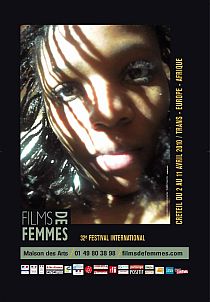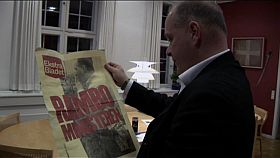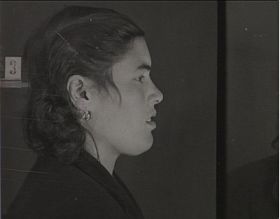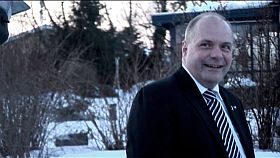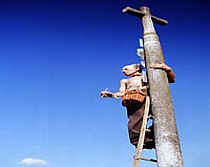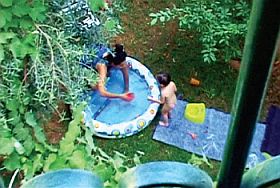En forfattergruppe, som kalder sig Medusa står for kronikken Birthe fra Vejle lægger niveauet for tv, der blev bragt i Politiken i søndags. En bredside af en kritik af TV´s personfiksering og føleri. Kasper Torstings film Søren Gade – de sidste 48 timer blev konkret prügelknabe:
http://politiken.dk/debat/kroniker/article928450.ece
Torsting har sendt os dette åbne brev om journalistik og dokumentarfilm:
Når jeg læser jeres kronik, bliver jeg forvirret. Forvirret over at være enig i mange af jeres synspunkter samtidig med, at I vælger at bruge en film, jeg har lavet som eksempel på det, I kritiserer. Godt og vel 600.000 mennesker så filmen, og ifølge Gallups TV-meter måling var seernes karakter fire ud af fem mulige. I al beskedenhed et udmærket resultat. Desværre vil det høje seertal være negativt i jeres optik. Alle er naturligvis velkomne til at mene, hvad de vil om min film, men når I (“Tænketanken” Medusa) skyder til højre og venstre med jeres generelle anklager mod TV branchen – samtidig med at I selv forlanger dybde og saglighed – så er det måske på sin plads, at eksemplerne ikke er så upræcise. Og vi er rørende enige om, at der er nok at tage af – altså eksempler på dårligt TV.
Og hvorfor mener jeg så, at min film ikke er et specielt velvalgt eksempel på dårlig journalistik?
I jeres kronik anklager I min film for at være et “makværk” og “et grelt eksempel” på dårlig journalistik. At jeg som filminstruktør anklages for ikke at have levet op til den kritiske og dybdeborende journalistiske metode, betragter jeg imidlertid som en stor cadeau. Min film er ikke et journalistisk værk, og den behøver derfor ikke at leve op til bestemte kriterier for ‘god gedigen’ journalistik. Min film repræsenterer en af flere dokumentariske genrer. Man kan bl.a arbejde med ‘den kritiske journalistik’. Det gør jeg ikke. Jeg arbejder med en genre der hedder ‘den observerende dokumentar’. En type film, hvor virkeligheden ikke bliver lagt på hjul og stejle, men båret frem i åben karet.
Filmen omhandlede en væsentlig exit i dansk politik. Begivenhederne i de sidste dage omkring denne exit blev fremlagt i min film til seernes egen fortolkning. Jeg syntes det var interessant og relevant, at give de danske seere et menneskeligt indblik i en politikers virke og i det maskinrum, han befandt sig i. Derudover er det for en gangs skyld et blik ´indefra og ud`, hvor bl.a. pressens rolle bliver skitseret til offentlig beskuelse.
At en minister siger farvel til en livsdrøm og kniber en tåre med betroede medarbejdere, der sammen med ham har været igennem et enormt arbejdspres, er vel ikke så odiøst. Så længe det bliver formidlet med en fortællemæssig lødighed i en balanceret filmisk ramme, skal der naturligvis også være plads til de mere menneskelige aspekter i danske dokumentarfilm. Selv hvis hovedpersonen er politiker. Min film er et udtryk for et subjektivt indtryk, og ikke et mistroisk udtryk. Jeg er hverken ‘dommer’, ‘forsvarer’ eller ‘anklager’. Jeg er den tavse tegner der sidder i baggrunden og portrætterer den anklagede.
Personligt er jeg storforbruger af journalistik. I særdeleshed journalistik, der nogenlunde apolitisk kan give mig den information, jeg har brug for. Men som filminstruktør er det ikke nødvendigvis min opgave at komme med svar og fakta. Min opgave er derimod at lægge tingene frem, så mit publikum selv får lyst til at finde svarene. Jeg filmer ikke for at få bekræftet en allerede fastlagt vinkel. Jeg prøver at sænke paraderne og lade fortællingen folde sig ud foran mit kamera. Jeg følger med virkeligheden som subjektivt vidne og genfortæller det, jeg oplever. Naturligvis via det temperament, som jeg repræsenterer.
Jeg er enig med jer i, at krigen er et morads, som nogen virkelig burde forholde sig til både kritisk, dybdeborende og journalistisk. Min film havde et andet sigte og en anden tone, der blev forstået af almindelige danske TV seere, men blev afvist af en særlig gruppe journalister, der insisterede på at betragte filmen som et journalistisk produkt og ikke en observerende dokumentar. En enkelt chefredaktør blev så provokeret af min film, at han på åben skærm talte imod bedre vidende og påstod, at Søren Gade selv havde bestilt filmen, filmens indhold og sendetidspunktet. Sådan fungerer det naturligvis ikke.
For at vurdere kritikkens tyngde har jeg tænkt på, hvad ”tænketanken” Medusa mon er for en størrelse. Der var ikke meget at finde. En er journalist ved Politiken og en anden har lagt navn til TV-serien ”2900 Happiness” som tekstforfatter. Den mytologiske Medusafigur er som bekendt en kvindeskikkelse med fortrukket ansigt og slanger som hår, der med sit blik kunne sprede afgrundsdyb rædsel. Er det rædsel, I vil sprede i offentligheden ved jeres analyser, eller er navnet bare endnu et upræcist valg?
Med venlig hilsen Kasper Torsting



